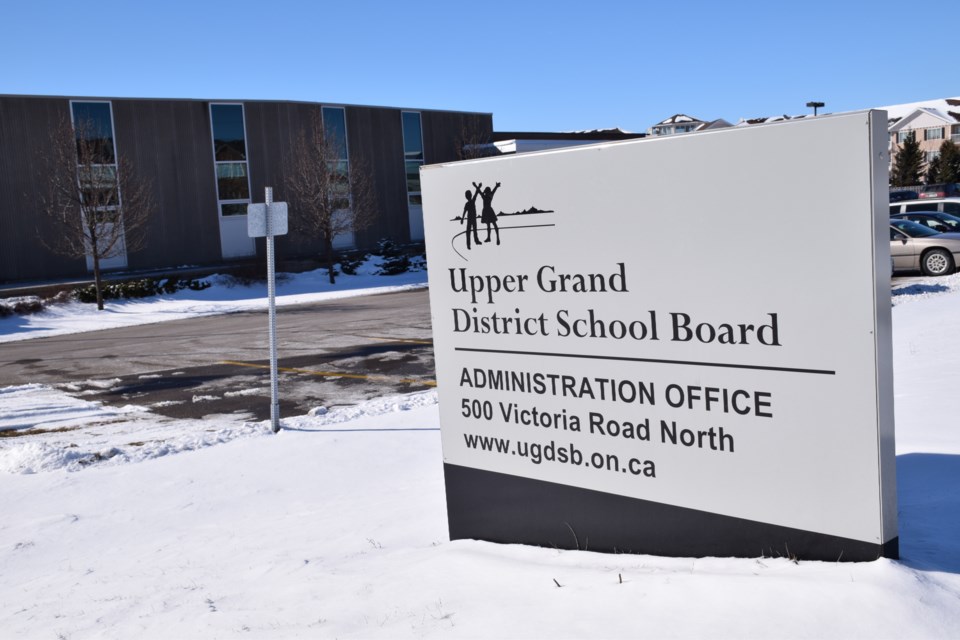There’s a French language problem in the public school system in Guelph and area. Less French may be taught, and fewer students admitted into French immersion if the problems aren't resolved.
While there is increased demand for instruction in the official language, the Upper Grand District School Board, not unlike other boards across Ontario, is having trouble finding qualified teachers.
The board’s core French and French Immersion programs at both the elementary and secondary level have grown significantly in the 40 years that they have been offered, a board official said. But that growth comes with challenges, including finding space to accommodate more students.
Repeated boundary reviews to accommodate students elsewhere, and increased transportation costs are among the outcomes.
Several months ago the board established a French review committee to look into the problem, and it has come up with a number of recommendations. The committee’s report is available at www.ugdsb.on.ca/frenchreview.
The public will be invited to give feedback on the committee’s recommendations at a series of upcoming information sessions.
Among the recommendations that have already been approved by the board is one calling on the Ontario Public School Boards Association to advocate for a comprehensive review by the province of French as a Second Language (FSL) opportunities, and to look into the issue of the availability of French teachers.
As well, there is an approved recommendation to expand recruitment practices for French teachers, and to explore the idea of pool hiring to attract and retain qualified teachers. The board also approved a recommendation to hire on contract an individual to develop a recruitment process for those teachers.
Upper Grand is hosting the first public information session next Wednesday, to let the public know what its French language challenges are, and what the possible solutions might be.
The first session happens in Fergus on Feb. 24, 7-9 p.m. at Centre Wellington District High School, 905 Scotland Street. Sessions in Mount Forest and Orangeville will take place in early March.
The Guelph session will happen on March 30 from 7-9 p.m. at Centennial Collegiate Vocational Institute.
“This committee spent about nine months looking at all the different issues and challenges with French language instruction, and also came up with a few different scenarios,” said Heather Loney, Upper Grand’s communications and community engagement officer. “They did quite a bit of work testing out these various scenarios, looking at data and enrolment projections.”
Loney said Upper Grand’s French Immersion program is very popular.
“One of the issues that comes up with that popularity is being able to find enough teachers that can teach French language,” Loney said. “And we are trying to avoid the situation where every couple of years you have boundary reviews and shifting kids from school to school.”
She added that the focus of the information sessions is to inform the public about the recommendations in the report. Recommendations about how to address the enrolment pressures have not been approved by the board.
Learning a second language has proven benefits for students. It enhances critical and creative thinking, encourages a broader understanding of other cultures, and improves career opportunities at home and abroad.
“Enrollment has continually gone up in French Immersion, even as enrolments overall in our elementary schools have declined,” Loney added. “That’s great. It’s a fantastic program. But if you don’t have enough teachers who are qualified to teach those students, then you have some issues with how much French they are being taught during the day, how many classes are available, and how many schools are available to teach that program.”
She said the number of graduates coming out teacher’s colleges who are qualified to teach French is very small.
“It’s a challenge that all boards are facing right now, so we are in competition with every other school board around us when it comes to hiring those very few qualified teachers,” she said. “If the popularity and enrolment numbers continue on the path they are going for French immersion, we are looking down the road at saying, are we going to be able to have enough teachers to staff this program.”
If the trend continues as it is going, a reduction in the amount of daily instruction in French, and placing a cap on the number of students that can enter the program, are possible outcomes, according to the committee’s findings.
The office of Liz Sandals, Minister of Education and Guelph MPP, was contacted for comment on the issue. In an email response, press secretary and issues manager Nicole McInerney said the ministry "recognizes the tremendous advantage students have when they speak more than one language." Doing so strengthens problem-solving, reasoning, and creative thinking, she added.
The ministry recognizes the popularity of FSL, and the steady increase in demand for French Immersion.
"Although Ministry forecasts indicate that there will continue to be a large pool of certified English-language teachers available for several years, particular program areas such as French as a Second Language experience greater demand," she said. "As such, we are working with our education partners to create awareness about the ongoing need for FSL qualified teachers."
